Before you go!
Interested in free assistance to improve your screening and referral rates?
Routine screening is recommended by the American Academy of Pediatrics3, Medicaid’s Early and Periodic screening, Diagnosis, and Treatment (EPSDT)4, and the Department of Education’s Quality
Rating Improvement System (QRIS)5. Early screening and intervention are critical to improving health
outcomes for children.
Screenings are available in English & Spanish and are easily customizable to your needs.
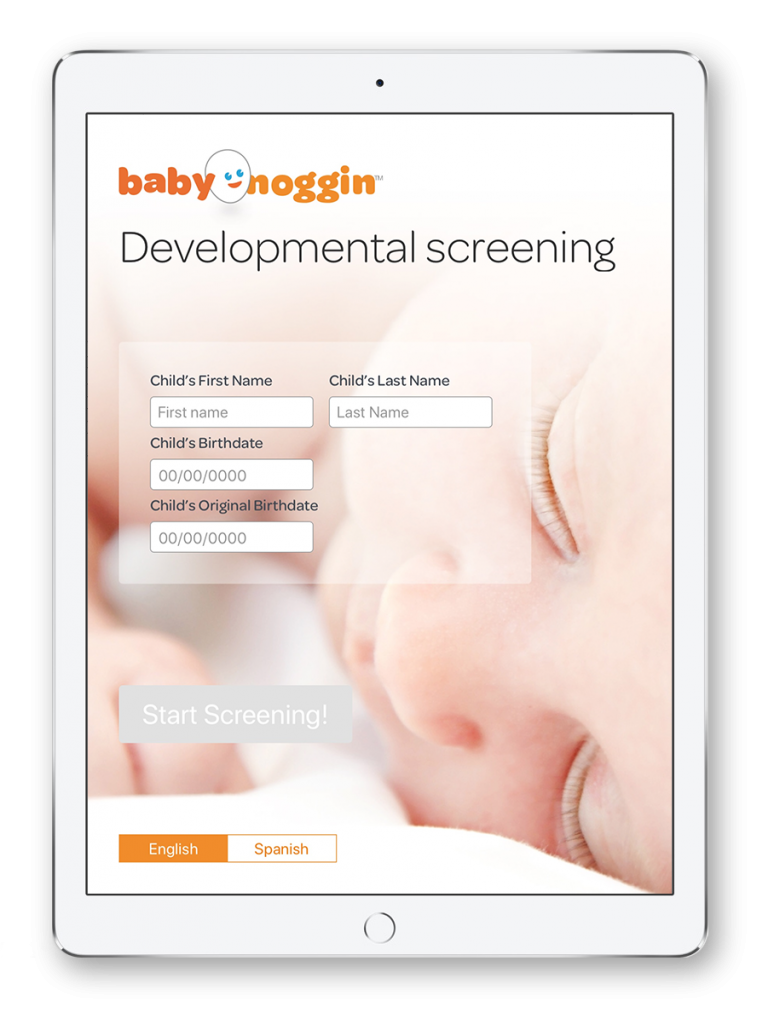
Parents sign-in and enter child’s birth date.
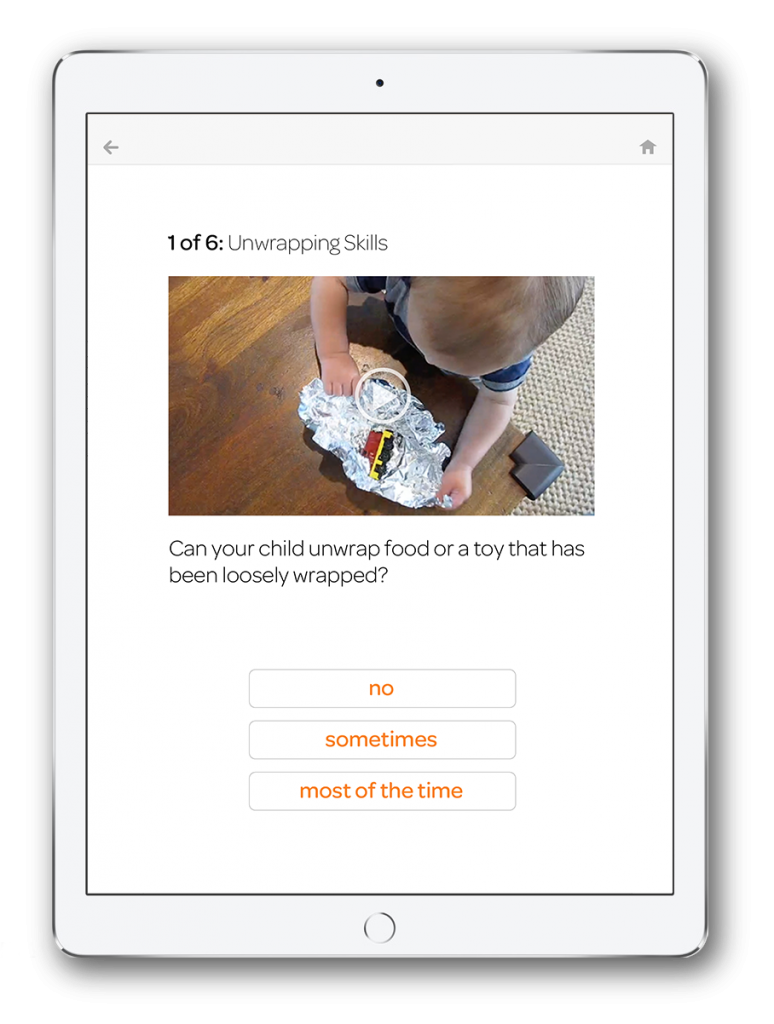
Parents can self-screen with simple step-by-step videos.
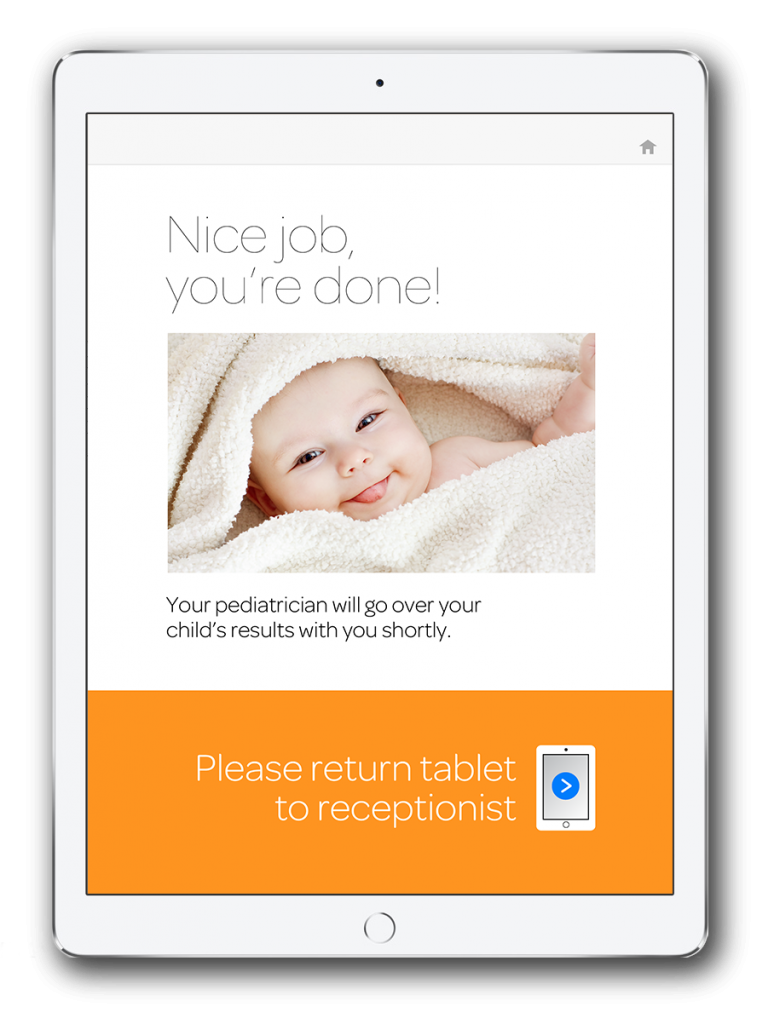
Results are automatically scored, printed, and integrated.
Of parents increased understanding of developmental milestones
Of parents completed at least one developmental screening
Of children screened were determined to be at-risk for delays
Of parents followed up with their pediatricians

Eliminate scoring errors and capture more accurate data on students.

Spend time supporting children and families and not on paperwork.
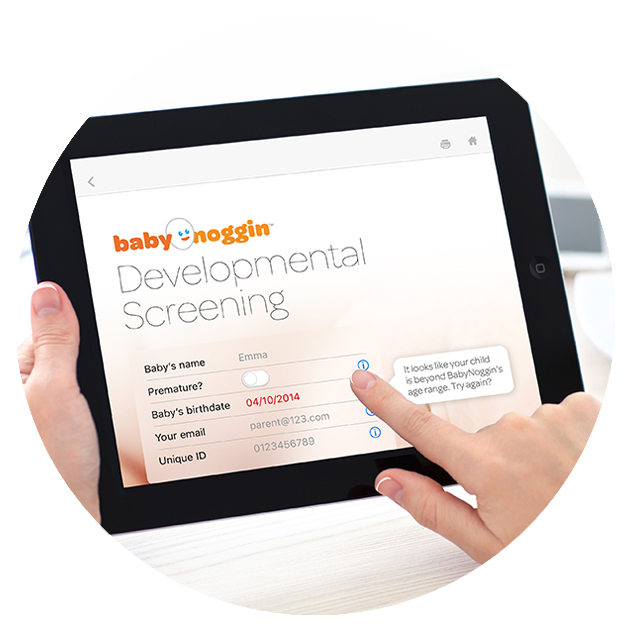
Use data to inform care decisions so all students get the support they need.
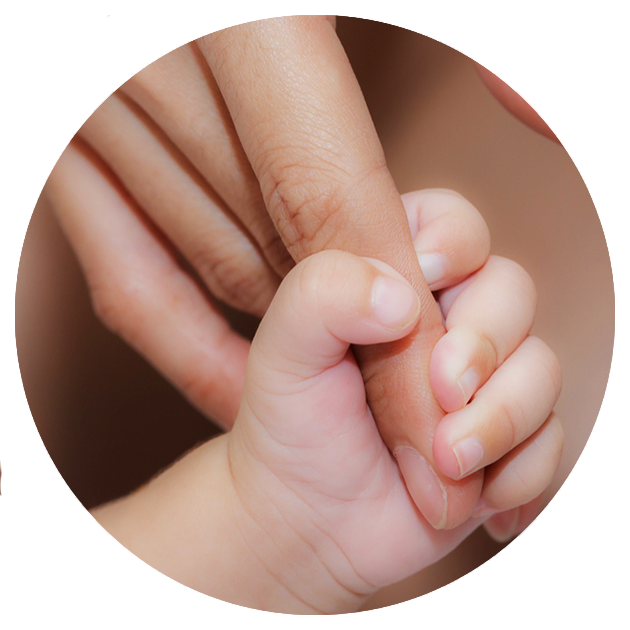




As the Director of Programs and Education I am always looking for ways to streamline our systems while improving outcomes, increase data integrity , accurately identify children requiring a higher level of services and provide an enhanced experience for our parents. Thru the use of the Baby Noggin app we have been able to identify the correct screening version, reduce the amount of paper copies, ensure fidelity to the screening tool and accurately screen all children in our care. These benefits have opened up additional time for our staff to work directly with the families to provided needed resources and referrals, and create classroom intervention plans aligned with the children’s identified needs
"Parents often don't realize that because they know their child best, they play a huge role in
detecting developmental concerns at a young age. With Baby Noggin, parents have an easy
and educational tool that delivers instant answers to them and their pediatrician about their
child's risk, while providing the opportunity to connect immediately to 211 LA's Care
Coordination services to make sure the child receives the early interventions and resources they
need. "
What has me really excited about the potential of BabyNoggin is its ongoing commitment to making critically important, evidence-based developmental screening tools and information easier to access, use and share by putting it at the virtual fingertips of parents, pediatricians and educators.
1. U.S. Department of Health and Human Services, Health Resources and Services Administration, Maternal and Child Health Bureau. (2014).
The Health and Well-Being of Children: A Portrait of States and the Nation, 2011-20127. Retrieved from https://mchb.hrsa.gov/nsch/2011-12/health/pdfs/nsch11.pdf
2. Hirai, AH, Kogan, MD, Kandasamy, V, Reuland, C, and Bethell, C. (2018). Prevalence and variation of developmental screening and surveillance in early childhood.Jama Pediatrics, 172(9), 857-866.
3. The American Academy of Pediatrics. Screening Recommendations. Retrieved from https://www.aap.org/en-us/advocacy-and-policy/aap-health-initiatives/Screening/Pages/Screening-Recom mendations.aspx
4. National Academy for State Health Policy. Developmental Screening Medicaid Policy by State. Retrieved from https://healthychild.nashp.org/wp-content/uploads/2016/04/Final-Developmental-Screening-Policy-Chart-1 2.20.16.pdf
5. Ounce of Prevention Fund. Developmental Screening. Retrieved from https://www.theounce.org/wp-content/uploads/2017/03/NPT-Developmental-Screenings-State-of-the-Stat es.pdf
©2019 | Privacy Policy | Term of Use | All Rights Reserved.
Interested in free assistance to improve your screening and referral rates?